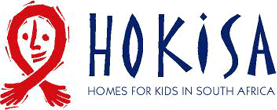HOKISA Various updates
As we continue through the year, we’d like to take a moment to share a glimpse into the day-to-day life at HOKISA—and to thank you for being such an important part of this journey.
HOKISA has a stable staff, with all key care positions filled. The organization employs a total of 12 people. This includes nine Child and Youth Care Workers who provide support to the children and youth. There is also a Homework Assistant to help with schoolwork, a Project Manager to oversee programs, and a Social Worker to address emotional and social needs.
Each day at HOKISA is filled with purpose and care. Our team of passionate child and youth care workers ensures that routines run smoothly—from school drop-offs and homework support to life skills development, playtime, and emotional care. Mealtimes are moments of connection, and evenings are dedicated to reflection, laughter, and winding down in a safe and loving space.
Children and youth residing in alternative care face complex challenges that significantly affect their development and overall well-being. These challenges arise from their individual life experiences. At HOKISA, the children frequently bear the weight of profound trauma, including experiences of abuse, neglect, and abandonment. Such a traumatic history hinders their ability to develop and maintain trusting relationships with caregivers, leading to emotional barriers that complicate efforts at healing and development.
Behavioral challenges are common among these children, manifesting as defiance, withdrawal, and other forms of resistance that pose challenges to maintaining structured routines. These behaviors often stem from unresolved trauma and coping mechanisms, creating a barrier to effective therapeutic interventions and requiring staff to navigate these issues with sensitivity and consistency.
Schooling remains a challenge for our children and youth at HOKISA, primarily due to Interrupted Schooling. Transitions between different homes and the instability of their living situations contribute to substantial gaps in their educational progress. The repercussions of past neglect and emotional turmoil further exacerbate these challenges, as many children lack the individualized support necessary to thrive academically. Consequently, poor academic performance becomes a pervasive issue, limiting their opportunities for future success and creating a cycle of disadvantage that can be difficult to break.
The children and youth at HOKISA require comprehensive and tailored support to address both their immediate behavioral challenges and their long-term educational needs, ultimately paving the way for healthier development and integration into society. We continue to offer counseling, mentorship, and structured programs that build resilience and confidence in our young people. On weekends, we embrace creative activities, educational outings, and opportunities for the children to be children, curious, playful, and free.
All children at HOKISA are generally healthy, and we prioritize their care by partnering with our local clinic. This collaboration focuses on young individuals with chronic health conditions. Our dedicated team administers chronic medication daily, following a strict adherence policy to ensure timely treatment and monitor each child’s health closely. Mental health in South Africa remains increasingly high, particularly for adolescents, highlighting the need for stronger in-house psycho-social support at HOKISA.
At HOKISA, we believe that every child deserves not only a safe and nurturing environment during their stay but also a solid foundation for the journey beyond our care. As young people approach the age of exit from our Child and Youth Care Centre (CYCC), we implement a structured Exit Plan designed to prepare them for independent living, reunification with family, or integration into supportive communities.
The Exit Plan is a personalized roadmap developed with each young person nearing departure from the centre. It ensures their move out of care is not abrupt or unsupported, but rather a carefully coordinated process with the necessary tools and networks in place to thrive independently. Each young person’s housing situation post-exit is assessed for safety and stability. Where family reunification is possible and appropriate, we involve family members early in the transition process. For others, transitional housing or supervised independent living may be arranged through partner organizations. We aim to ensure every youth leaves with a clear educational or vocational path. This includes continued schooling (when possible), enrollment in skills development, or tertiary programs, life skills training (financial literacy, cooking, CV writing, etc.)
For older youth, we explore job readiness through internships, part-time work, or small enterprise initiatives. Where no employment exists yet, we assist in setting up realistic job-seeking plans, including help with documentation and interview preparation. Medical check-ups and access to mental health support are part of the exit process. We work with local clinics and counsellors to ensure continuity of care, particularly for young people with chronic health conditions or trauma histories.
We help ensure that young people have all essential documents: birth certificates, ID books, school records, bank accounts, and access to social grants (if eligible). These are critical for independence and inclusion in broader society. Perhaps the most important part of the Exit Plan is aftercare. We remain connected to each young person through regular check-ins, referrals to community resources, emergency support if needed, and peer or mentor networks.
Masi Creative Hub has generously contributed its gardening expertise to HOKISA, providing invaluable services that include a variety of vibrant seedlings and nutrient-rich compost. This thoughtful donation not only supports sustainable gardening practices but also fosters a nurturing environment for growth and development within the community.


